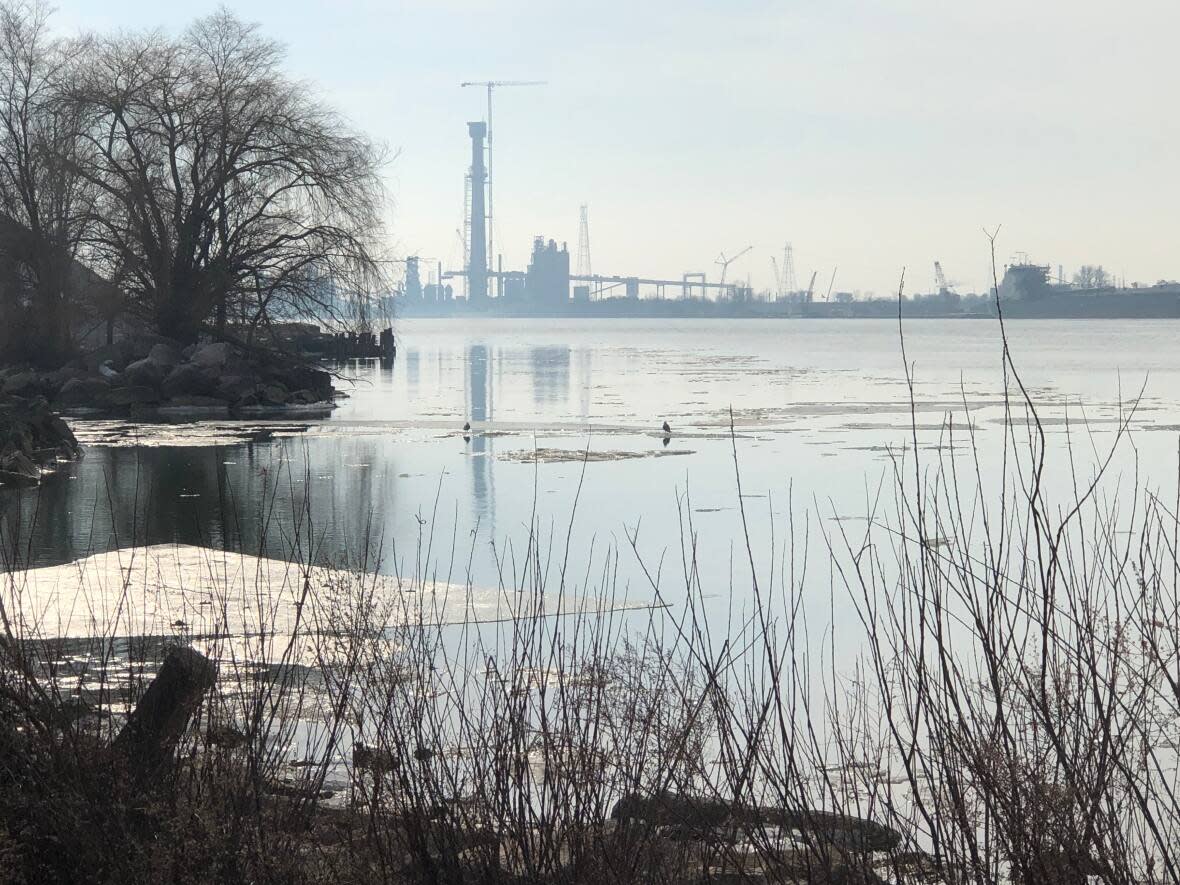Surface water quality, tree cover get bad grades from conservation authority

The Essex Region Conservation Authority (ERCA) released its report cards for the watersheds in the region and while some results are positive, ERCA concluded that some areas need improvement.
The report cards, which are given based on five years of data collection, are given out by conservation authorities across the province using standardized methodologies to grade surface water and groundwater quality and forest cover, according to Katie Stammler, a water quality scientist with ERCA.
Stammler said ERCA looks for substances in water that would indicate human influence: fluoride, E. coli and phosphorus.
Ground water scored well, in large part because of natural protection in the soil.
A lot of our focus on that has been on runoff from agricultural fields. - Katie Stammler, Essex Region Conservation Authority
"We have a really heavy clay soil that sits on top of the ground water aquifers and that protects ground water from any pollutants," she said.
"So we ended up with the scores of A with our groundwater."
Surface water issues
Things weren't as positive for surface water, where scores were between a grade of C and F, due to high levels of phosphorus and E. coli.
Leaky septic tanks are adding to high levels of E. coli going into the tributaries in the region, and runoff from farm fields, greenhouses and residential fertilizer use is adding to high levels of phosphorus and nitrates in surface water.
"A lot of our focus on that has been on runoff from agricultural fields and our strategies using fertilizer at the right time, place, source, rate."
That runoff, Stammler said, isn't generated by a few careless individuals but the fact that there is so much agricultural land in the region.
She said that's why part of ERCA's strategy is trying to optimize fertilizer use.

"The one key thing that we try to look at with any sort of fertilizer application, and I think it's really important for us as individuals as well.… Is this the right time to use it? Is this the right place?"
She said making sure not to put fertilizer down just before it rains and using good cover crops in the winter help hold the soil together and prevent massive runoff events.
"There's been lots of reasons why there was hesitation to use cover crops here because the heavy place soil dries out so slowly in the spring and it creates other risks for planting in the spring," she said.
Another focus is finding out why what are supposed to be closed-loop systems, like greenhouses, are leaking into the environment.

"Somehow the nutrient water is getting into our environment, so we need to work with that sector to figure out how that's happening."
Mike McKay, executive director for the Great Lakes Institute for Environmental Research, said the effects of runoff on the lakes depends on the weather.
"It really depends on how wet of a spring we have. We can look at, you know, the months March through June roughly to see how much of runoff we have from our watershed into the lakes," he said.
"If we have a dry spring, the blooms usually aren't too bad in the summer because we don't have as much of an input of nutrients. Wet spring, we have a lot more loading of nutrients from the watershed into the lakes."
Tree cover
ERCA also gave the region bad grades for tree cover, though Stammler said to achieve a grade of C would require 15 per cent tree cover, and that "is just simply not achievable in this area," because of development.
She pointed to efforts made to increase tree cover — ERCA planted 408,000 trees in the last five years and restored 2,833 hectares to forest cover.
Increasing tree cover is important because it helps create shade — something that's becoming more and more important as temperatures become more extreme in summer — and it helps hold soil in place.
Not only does that prevent substantial erosion, but acts as a natural barrier to some of the substances getting into waterways from fields and urban centres.


